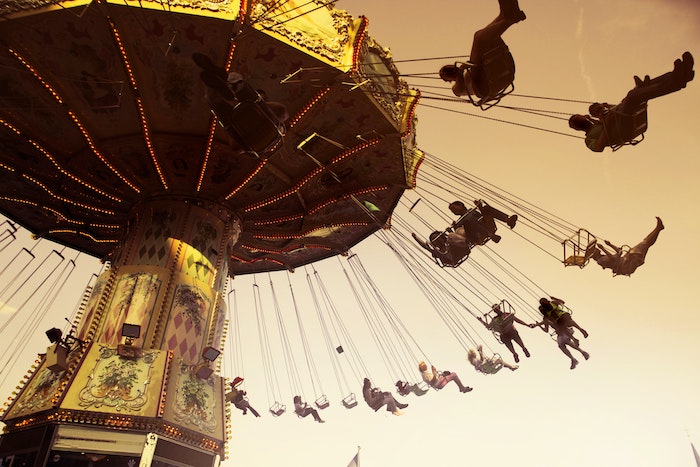VISUAL PROMPT
by Andrea Piacqua @ Unsplash

Write a story or poem that could be title 'We Fly'.
Volāmus
Íkaros is five when he hears the whispers of his fathers deeds.
Of the cousin he never got to know. Of his fathers corrupting hubris.
But he is the son of a slave girl, and his father is the greatest inventor in all of the Mediterranean.
So the whispers he ignores.
It’s the next year when his father comes home, confused and tired. He won’t speak of what troubles him, but Íkaros hears him speak to his mother.
He peers through the crack in the wooden door, his eyes curious and seeking, his ear pressed close.
“It is sickening Naucrate, I cannot do this”, Daedalus muttered, and his wife only looked at him with sad eyes.
“She is the Queen, you cannot deny her”.
Her hand grasps her husband, and the look they share is one Íkaros cannot decipher.
Whatever it means, Daedalus’s resolve appears steely as he leaves the stone hearth.
At his exit, Íkaros dashed to his mother. He tugs at the hem of her skirt as he asks “what does the Queen want?”.
Naucrate smiles warmly and lies when she says “It will be alright little one, the Queen is simply curious of your Father’s talents”.
The next day a bull of bronze is carter into the palace.
It shines in the light of Helios, smooth and perfect.
He is eight when the King approaches his father.
The King is red faced and angry, for what Íkaros does not know. He has never met the King, he would not deign himself to visit an outcast, no matter his skill as a craftsmen.
The matter must be very serious, this Íkaros understands.
The King yells of a bull, an abomination, a curse from the gods.
He demands a means to control the monster that his father had a hand in creating.
The Kings voice is hoarse and Íkaros is paralysed by all encompassing dread. It sits under his skin, twisting and sharp. It is a feeling that begs him to move but the Gods hold him in place.
He sits with his mother on his klínē, she tries to pull him close but he will be a man soon. He does not need her protection.
He cannot need it.
At nine he is taken from his mother, and the old stone tower he resides in is little substitute for her warmth.
His father’s hair is tangled and greasy and his eyes bracketed by dark circles.
Íkaros looks at his father and he thinks of that little boy back in Athens, his unknown cousin and a prideful inventor.
Íkaros looks at his father, and he watches him work, and he stays his mouth and sharpens his mind.
Íkaros is fifteen and he is no boy anymore.
Yet what man is he who is shut in a tower with a grumbling old man he is not sure he recognises most days and nights.
He looks out at the hopeful rays of the sun and thinks of freedom.
He’s seventeen when his father hands him his wings. Soft as the downy feathers of a fledgling and strong as an albatross.
Daedalus does not look happy, but there is a manic look in his eyes and a vibrance to him that Íkaros has not seen for so long.
He runs his hand along the rough wood, splinters catching against the soft flesh of his palm.
The wood is unpolished in his fathers haste to complete his work. The wax is smooth, but it seems strong enough.
“What do we do?” Íkaros asks, his voice small.
“We fly my boy”.
